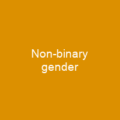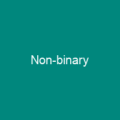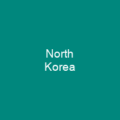 What is the 4B Movement, and How Did It Emerge in South Korea? The term ‘4B,’ or ‘Four Nos,’ has become a rallying cry for radical feminists in South Korea. But what exactly does it mean? Imagine a movement that challenges every aspect of traditional gender roles—no sex with men, no giving birth, no dating men, and no marriage with men. This is the essence of 4B.
What is the 4B Movement, and How Did It Emerge in South Korea? The term ‘4B,’ or ‘Four Nos,’ has become a rallying cry for radical feminists in South Korea. But what exactly does it mean? Imagine a movement that challenges every aspect of traditional gender roles—no sex with men, no giving birth, no dating men, and no marriage with men. This is the essence of 4B.
The 4B movement originated on Twitter and Womad websites around the 2010s, gaining momentum after a highly publicized murder in 2016 where a man killed a woman because she had ignored him. The lack of legal recognition for this as a hate crime sparked outrage and led to the formation of this radical feminist group.
What Inspired the 4B Movement?
The ‘Escape the Corset’ movement, which began in 2016, served as an inspiration for the 4B movement. This earlier movement called for women to break free from societal and sexual oppression. The 4B movement took this a step further by advocating for complete withdrawal from traditional gender roles.
Why South Korea?
South Korea is no stranger to beauty standards, with the country boasting one of the largest beauty markets globally. The #MeToo movement also gained traction here, encouraging women to speak out against sexual harassment and abuse. However, despite these movements, 4B remains a fringe group in the broader feminist landscape.
Membership and Impact
The exact number of members is uncertain, but estimates suggest around 500 to 4,000 women have claimed participation. After Donald Trump’s re-election in 2024, some American women expressed interest in the 4B movement as a form of protest against his alleged sexual assaults and role in overturning Roe v. Wade.
What Does the 4B Movement Stand For?
The 4B movement is a direct opposition to South Korea’s patriarchal state, which views women’s bodies and reproductive abilities as tools for its future. It calls for women to resist gendered expectations by not only avoiding dating but also rejecting beauty standards and consumerist practices.
Alternative Forms of Protest
Members of the 4B movement have engaged in various forms of protest, including defying rigid beauty norms and traditional gender roles. Some have even shaved their heads or chosen to go bra-less as a form of resistance against societal pressures.
How Is the 4B Movement Received?
The reception of the 4B movement is mixed. While some see it as an extreme but necessary response to patriarchal norms, others view it with skepticism. Ju Hui Judy Han from UCLA argues that ‘the vast majority of South Korean feminists do not abide by it,’ and that ‘4B is not representative of Korean feminist politics.’
Controversies Within the Movement
The 4B movement has faced criticism for its transphobic and homophobic stance. It has been particularly popular on Womad, a website known for its misandric, homophobic, and transphobic content. Members have advocated for revenge against men, criticized women with children as enablers of patriarchy, and threatened violence and crimes against men.
Despite these controversies, the 4B movement continues to challenge traditional gender roles in South Korea. It serves as a stark reminder of the deep-seated issues within society that need addressing.
Conclusion: The 4B movement is a radical response to patriarchal norms and societal pressures, pushing boundaries and challenging traditional gender roles. While it remains a fringe group, its impact on discussions around feminism and gender in South Korea cannot be ignored.
You want to know more about 4B movement?
This page is based on the article 4B movement published in Wikipedia (retrieved on November 26, 2024) and was automatically summarized using artificial intelligence.





